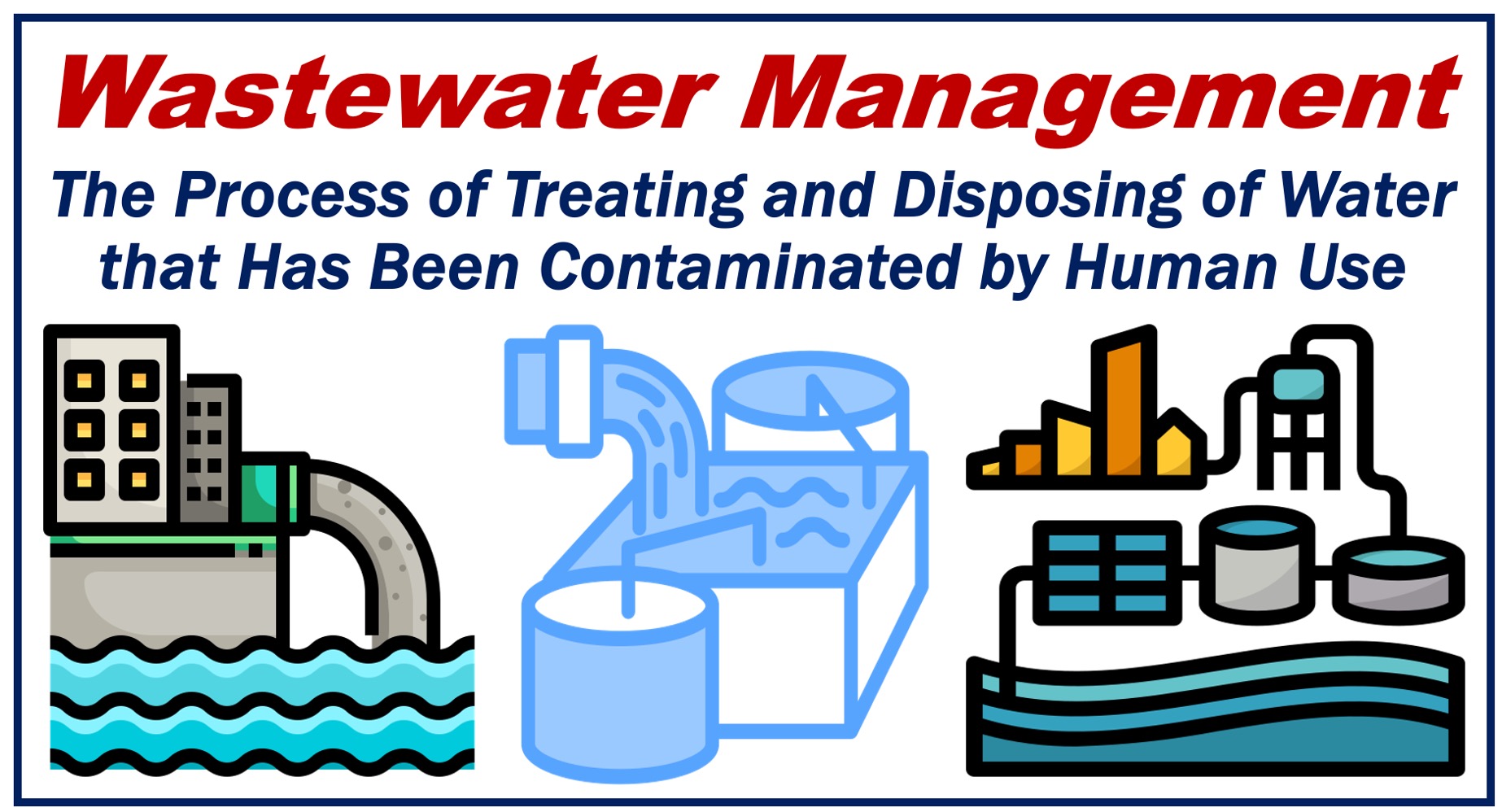What is wastewater management?
Wastewater Management is an important aspect of environmental conservation and public health. It includes the collection, treatment, and disposal or reuse of wastewater caused by domestic, industrial, agricultural, and commercial activities.
Effective wastewater management plays a crucial role in mitigating the impacts of climate change by reducing greenhouse gas emissions associated with untreated wastewater.
“Sewage is the part of wastewater that is contaminated with feces or urine.”
Importance of Wastewater Management
Wastewater management is crucial for many reasons, including:
-
Environmental Protection
When wastewater is treated properly, it minimizes pollution in water bodies, which helps preserve aquatic life and ecosystems.
-
Public Health
It also helps prevent waterborne diseases such as cholera, hepatitis A, and typhoid fever by making sure that harmful contaminants aren’t released into the environment where they may affect public health.
-
Water Reuse
After wastewater is treated, it can be reused in many ways, such as in agriculture and industry, and if treated correctly, it can be used as potable water. Potable water is water that humans can drink safely.
Methods of Wastewater Treatment
There are several methods of wastewater treatment, typically involving several stages:
-
Preliminary Treatment
This part of the process involves removing large solids and debris through screening and grit removal.
-
Primary Treatment
Sedimentation is used to remove suspended solids from the wastewater.
-
Secondary Treatment
Biological processes are employed to remove dissolved organic matter and nutrients.
-
Tertiary Treatment
Advanced treatment methods, such as filtration and disinfection, are used to remove remaining contaminants and pathogens, making the water suitable for discharge or reuse in various applications.

Challenges in Wastewater Management
Effectively managing wastewater presents various challenges, including:
-
Infrastructure and Funding
Many parts of the world lack the infrastructure and funds required to build and maintain effective wastewater treatment systems.
-
Industrial Wastewater
Treating industrial wastewater is particularly challenging due to the presence of hazardous substances that require specialized procedures.
-
Climate Change and Urbanization
Both climate change and urbanization exacerbate wastewater management difficulties by impacting water availability and quality, as well as increasing the volume of wastewater generated.
The Future of Wastewater Management
Technological advancements are continuously changing the world of wastewater management. Here are some examples:
-
Advanced Treatment Technologies
The use of technology such as membrane bioreactors, improved oxidation processes, and nutrient recovery systems.
-
Smart Water Management
The integration of smart sensors and IoT (Internet of Things) technology will enable more effective monitoring and control of wastewater systems.
- Sustainable Practices
There’s an increasing emphasis on sustainable practices, including the generation of electricity from wastewater, which not only addresses waste but also contributes to energy sustainability.
As society progresses towards a more sustainable future, the integration of green technologies and community involvement will further enhance the efficiency and effectiveness of wastewater management systems.
Written by Nicolas Perez Diaz

